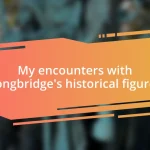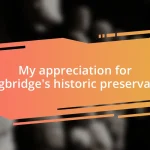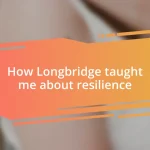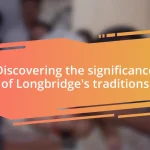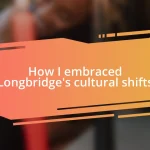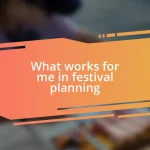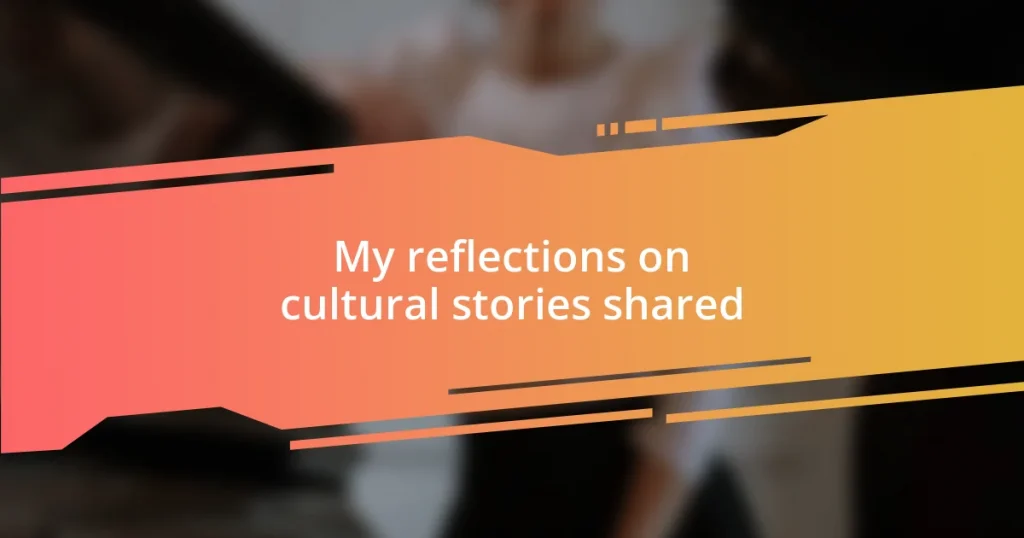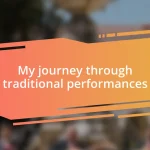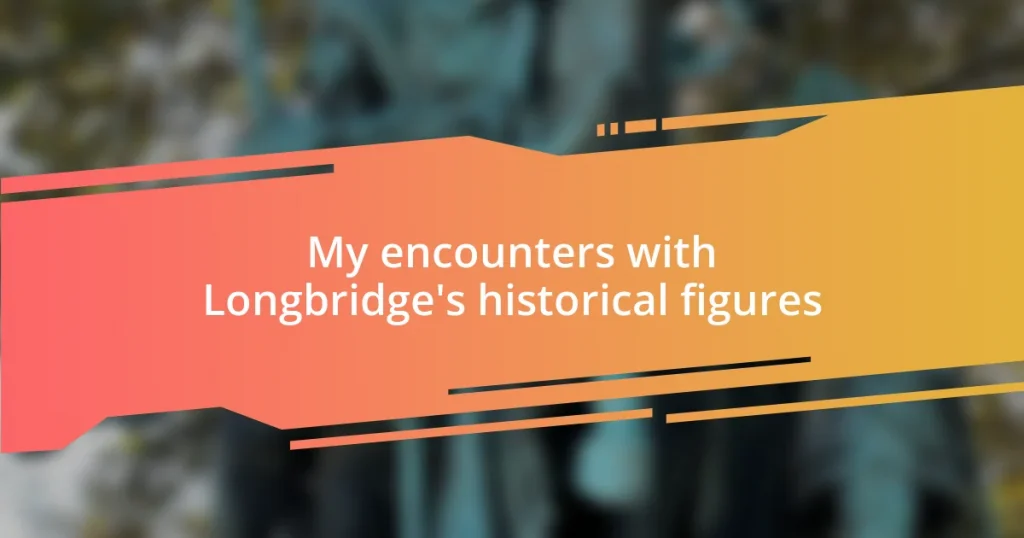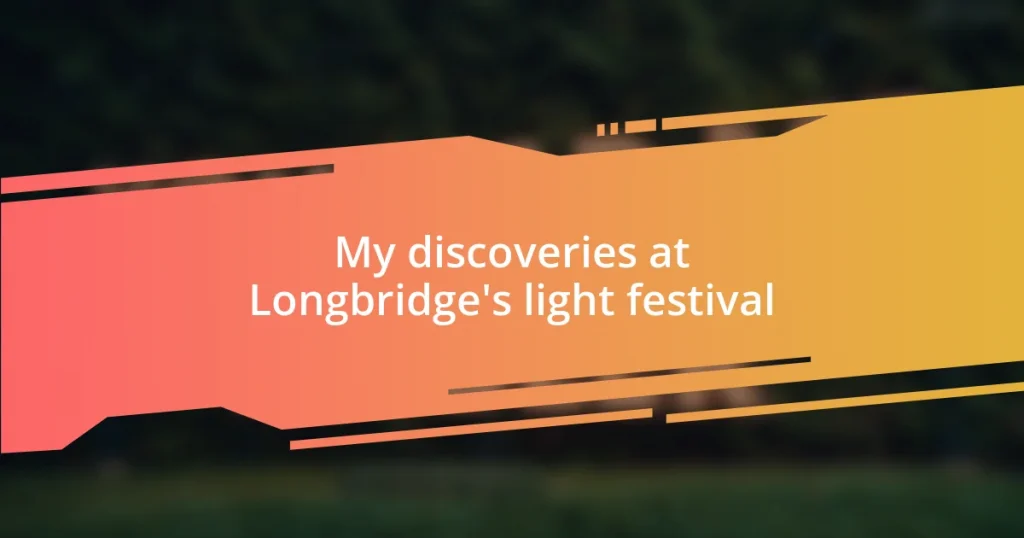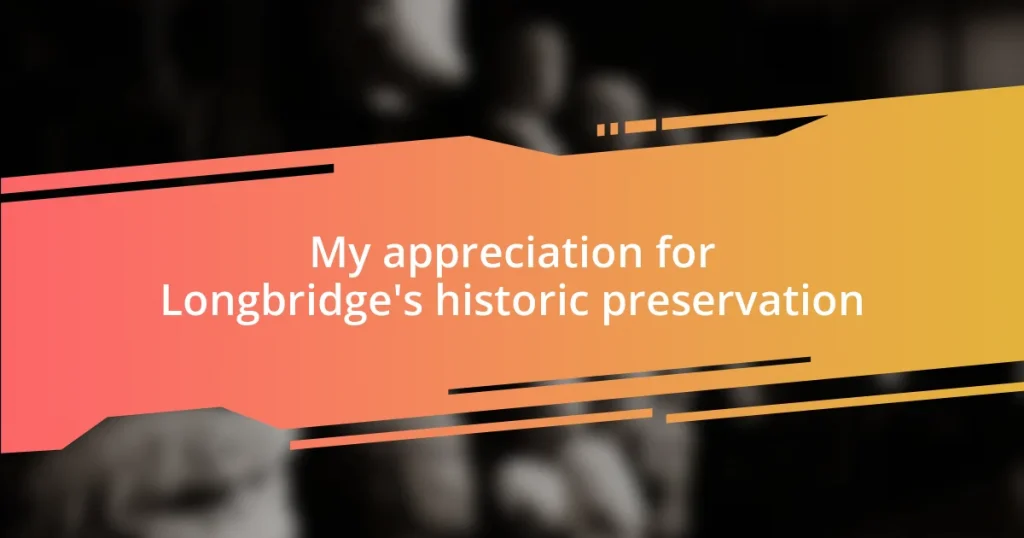Key takeaways:
- Cultural stories reflect community values and foster a sense of belonging, connecting individuals across generations through shared experiences.
- Storytelling serves as a powerful educational tool that promotes empathy, understanding, and cultural preservation.
- Encouraging storytelling in community settings, such as festivals or workshops, can bridge divides and create deeper emotional connections among participants.
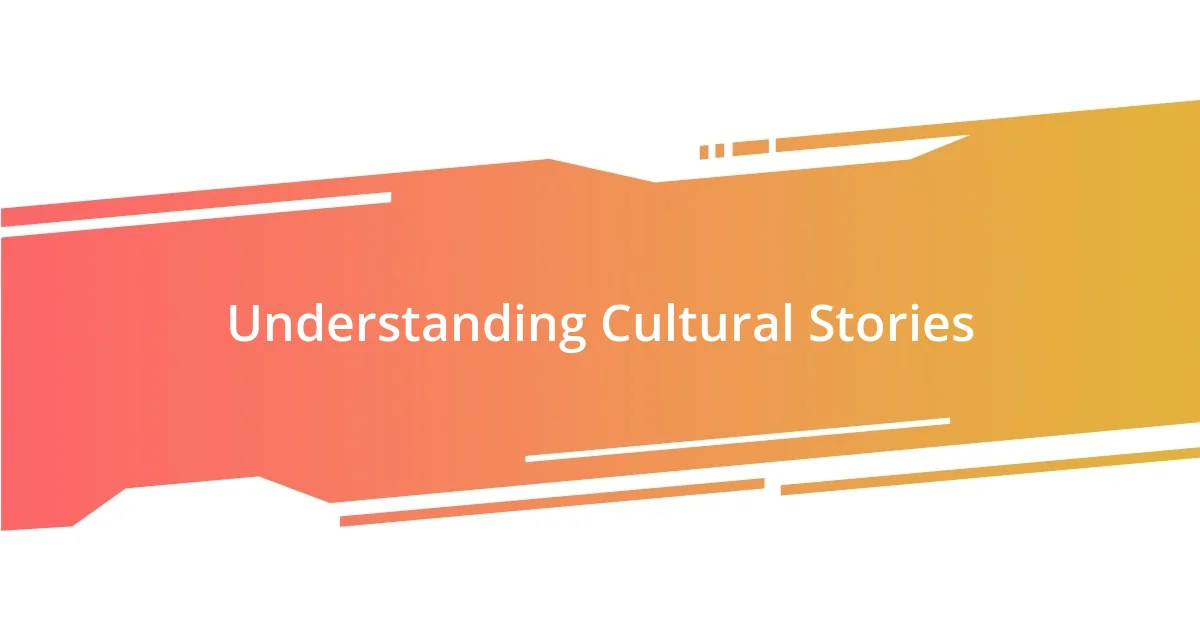
Understanding Cultural Stories
Cultural stories serve as a mirror, reflecting the values and beliefs of a community. I remember listening to my grandmother’s tales about our ancestors, and the way she painted vivid imagery made me feel a deep connection to my roots. It’s fascinating how these stories convey lessons or highlight important traditions, anchoring us in a shared understanding of who we are.
Have you ever found yourself captivated by a story that seemed to speak directly to your heart? For me, it was a folktale about resilience and hope, which resonated during a particularly challenging time in my life. Stories like these have a way of transcending generations, offering insight not just into history, but also into human emotions—universal struggles and triumphs that bind us all.
What’s intriguing is how cultural stories differ yet share common themes—love, sacrifice, courage. I often wonder, what makes these tales endure? When I explore various cultures, it’s clear that despite the differences in language or setting, the essence of humanity shines through, reminding us that at our core, we are all storytellers weaving the fabric of life together.
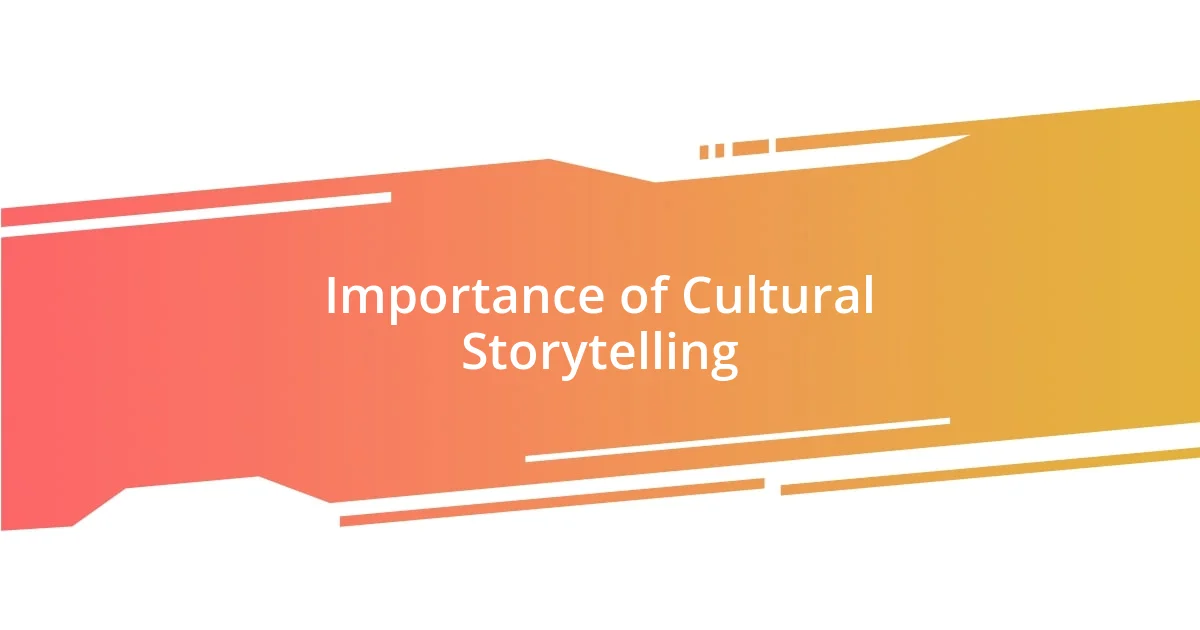
Importance of Cultural Storytelling
Cultural storytelling is not just entertainment; it’s a vital means of education and preservation. I remember attending a community festival where elders shared stories of their ancestors, and I felt an overwhelming sense of belonging and responsibility to carry those narratives forward. These stories hold immense power; they teach us about morals, instill pride, and keep the history of our community alive.
- They reinforce shared identities and values.
- Cultural stories provide a context for understanding current issues.
- They foster empathy by illustrating diverse perspectives.
- These narratives can act as a roadmap for the future.
- They encourage communal ties and understanding across generations.
Every time I hear a story from my own culture, it reminds me of the importance of connection. I recall a moment when a friend shared a parable from her background that unexpectedly mirrored my experiences. It struck me how profoundly these tales can bridge gaps between people, showcasing not only our differences but also our shared human experience. Through storytelling, we build a collective legacy that nurtures understanding and wisdom across cultural boundaries.
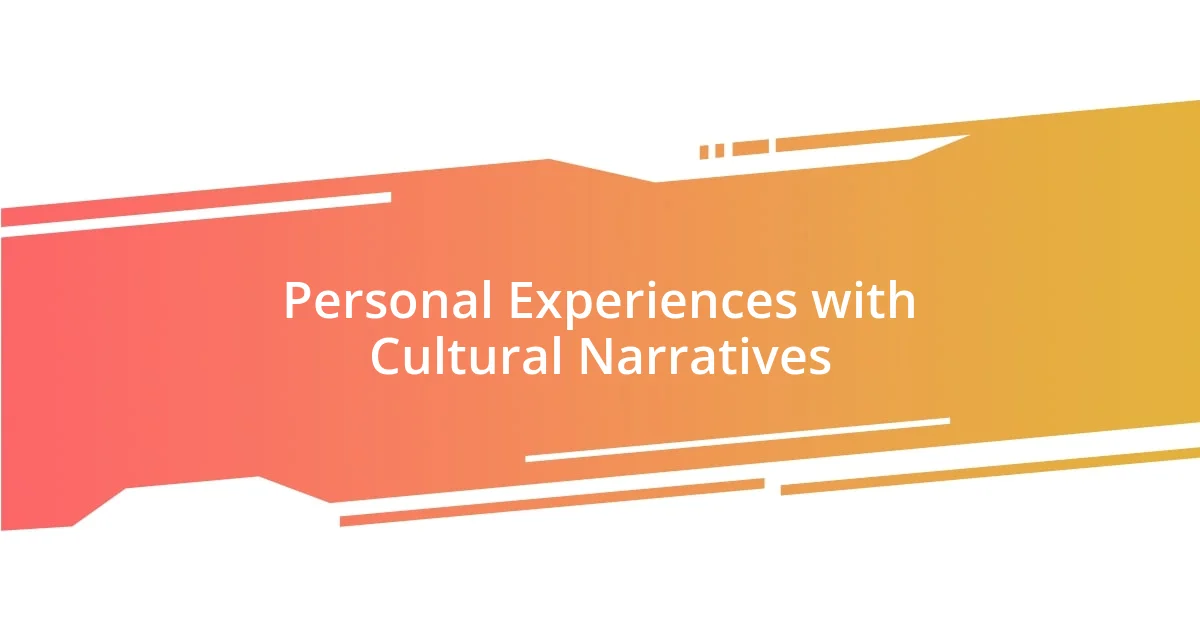
Personal Experiences with Cultural Narratives
I often find myself reminiscing about a family reunion where everyone gathered around a bonfire, each person eager to share their favorite cultural tales. The laughter and engrossed faces reminded me of how narratives can create a powerful bond. Listening to my uncle recount the story of our great-grandmother’s bravery during difficult times ignited a flame of pride within me. It was more than just a story; it was a connection to my family’s legacy.
Another vivid memory comes from a book club I participated in, where we discussed a novel steeped in cultural folklore. One member shared how a particular character’s journey mirrored her life. It sparked conversations about our shared experiences and how cultural narratives can be a source of empowerment. I was struck by how a story I initially viewed as fiction was deeply rooted in real emotions and struggles, serving as a bridge between my life and someone else’s.
Reflecting on my travels, I remember visiting a small village where locals recounted tales of their ancestors to preserve their heritage. Each narrative was a vivid tapestry of resilience and community spirit, and I couldn’t help but feel honored to hear them. These reflections on cultural narratives remind me of the universal truths we all strive for—belonging, understanding, and hope.
| Aspect | Personal Experience |
|---|---|
| Family Reunion | Bonding over storytelling with relatives created a sense of pride and connection to ancestry. |
| Book Club Discussion | A character’s journey reflecting real-life experiences led to empowering conversations. |
| Village Tales | Listening to locals share their heritage underscored universal truths of hope and community. |
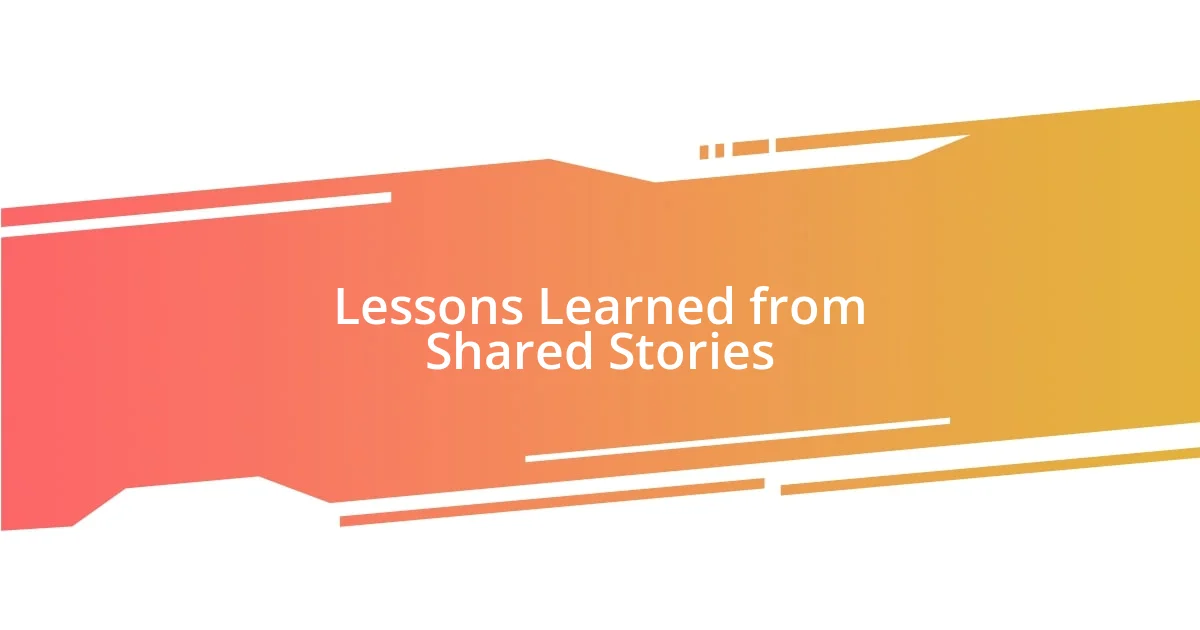
Lessons Learned from Shared Stories
When I reflect on the stories shared around that bonfire, I realize they offered profound lessons in resilience. For instance, one tale about facing adversity resonated deeply with me. I found myself wondering, how often do we underestimate the strength within our own families? Listening to those narratives reminded me that our ancestors faced their own challenges, which in turn filled me with courage to confront my personal struggles.
During those book club conversations, we unravelled layers of meaning within the stories we discussed. I distinctly remember when a fellow member recounted her encounter with discrimination in a way that echoed a character’s journey. It made me think—can literature truly act as a mirror for our lived experiences? The realization that we could find solace and understanding in fictional narratives underscored the power of storytelling to foster community and connection.
In another instance, while wandering through that small village, I felt a mix of awe and connection as elders shared their stories with sparkling eyes. Each narrative painted a rich picture of their cultural heritage, making me ponder about the legacies we carry. What if we embraced our shared stories more openly? That sense of unity I felt in listening to their experiences opened my heart to the knowledge that, despite our differences, we are all stitched together by the threads of our narratives.
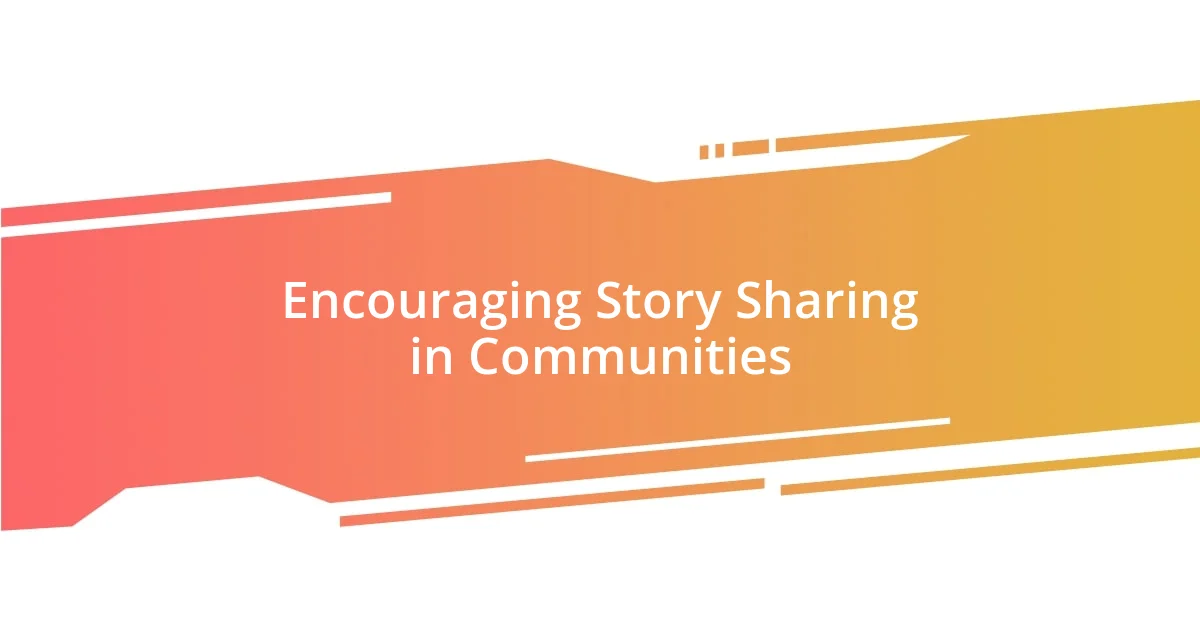
Encouraging Story Sharing in Communities
Story sharing is an incredible way to cultivate connections within communities. I remember attending a cultural festival where attendees were encouraged to share a moment from their lives that shaped their identity. Hearing stories of joy, struggle, and triumph from strangers felt like a warm hug; it was a reminder that we all carry profound experiences that could resonate with others. I often ask myself, how can we create more spaces like this, where voices unite and amplify our shared humanity?
In another experience, I volunteered at a local library’s storytelling workshop. Watching children enthusiastically narrate their own stories was infectious. Each tale brought a unique perspective to the table, sparking laughter and contemplation among the audience. It made me realize that even the youngest voices have the power to inspire and teach us about resilience and creativity. Why don’t we celebrate these moments more often? Sharing stories can break down barriers, inviting understanding and empathy into our lives.
Additionally, I once joined a neighborhood potluck where everyone was invited to share their favorite family recipe along with a story behind it. As people recounted their culinary creations, the emotional connections erupted. I was so moved when one woman spoke about her grandmother’s recipe for healing during tough times. It struck me that food and storytelling often go hand in hand, weaving a rich tapestry that connects us to our roots. Isn’t it amazing how sharing a simple meal can deepen our bonds and keep our cultural narratives alive?
